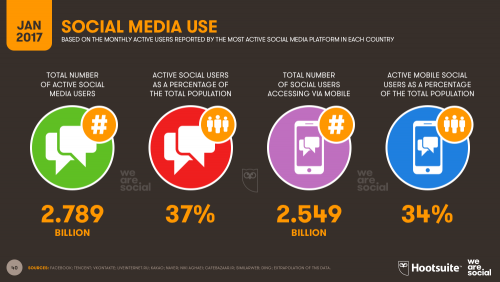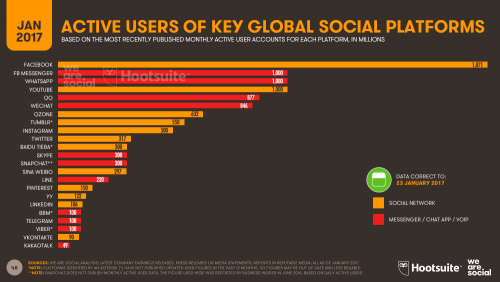ln today’s world, with the immense development of technology, every sector has advanced tremendously. But among all other sectors, information Technology has seen the biggest improvement in this decade. It has helped to change people’s lives in unprecedented ways by simplifying and bringing vast global economic and market information, improving health research services spreading quality education, keeping informed with latest global news, getting connected with distant friends and families and so on. It is well-known that digital media has sky-rocketed lately. With the rise of various social media (Facebook, Steemit, Twitter, lnstagram, Youtube, Snapchat, etc), and the easiness to use them. more than 2.7 billion people are active social media users. Social media highly influences our relationships, perception on entertainment shopping and education. But how large of a role does networking through social media play into our lives? Maybe more than any of us realize.

Although exceptions exist, research suggests that most social networks primarily support pre-existing social relations. For the most part, Face book is used to maintain existing offline relationships or solidify offline connections, as opposed to meeting new people. These relationships may be weak ties, but typically there is some common offline element among individuals who befriend one another, such as a shared class at school. This is one of the chief dimensions that differentiate social media from earlier forms of public communication such as newsgroups. Research in this vein has investigated how online interactions interface with offline ones. Face book users engage in ”searching” for people with whom they have an offline connection more than they "browse" for complete strangers to meet.

We like to think that we are largely in control of our day-to-day lives, yet most of what we do, from what we eat to who we get along with, and even the way we feel, is significantly influenced by those around us' and those around them. Our actions can change the behaviors and the beliefs of our connected users. In an indirect way, social networks help spread hatreds, substance misuse, disseminate crazes and markets, alter voting patterns, and more. For instance, a Big Data company named -‘Cambridge Analytica' which uses Psychometrics (psychographics) focuses on measuring psychological traits, such as personality. In 2012, this company 'proved' that on the basis of an average of 68 Face book "likes" by a user, it was possible to predict their skin color (with 95% accuracy), their sexual orientation (88% accuracy), and their affiliation to the Democratic or Republican party (8%). This is the same company with revolutionary approach to data-driven communication that is behind the success of US President Donald Trump's win as well as UK’s Brexit campaign.
Social networks can harbor a flow of generally undesirable things such as anger, sadness and unhappiness, but good things also flow like happiness, love, humanity, and valuable information. It is known that our happiness is connected with the happiness of people three steps removed from us; whether we’re happy or not depends in part on our friends' friends' fnends.
We should know that we have a larger impact on our social network than we believe. What we update on our online status has more effect on our audience than what we think. Whatever we share or follow or comment or rate are being collected and monitored. These data become the tool for the media and various agencies to control our behavior and act on some defined will. We should think wisely about what to share or how to interact in the social media. The moment we leave our digital footmark, we should realize that we have become part of the digital content and have contributed to it. This mark can be used by others for manipulating our behavior. And i don't think anyone would like to be controlled by other entities.
References: